Intro
Discover 5 ways to manage high hypertension, including lifestyle changes, medication, and stress reduction, to lower blood pressure and prevent cardiovascular disease, heart failure, and stroke risks.
High hypertension, also known as high blood pressure, is a serious medical condition that affects millions of people worldwide. It is a major risk factor for cardiovascular disease, stroke, and kidney disease, and can have a significant impact on a person's quality of life. In this article, we will explore the importance of managing high hypertension and provide tips on how to do so.
High blood pressure is a condition in which the blood pressure in the arteries is consistently too high. This can cause damage to the blood vessels, heart, and kidneys, and increase the risk of heart attack, stroke, and other cardiovascular problems. High hypertension can be caused by a variety of factors, including genetics, obesity, physical inactivity, and a diet high in salt and sugar. Managing high hypertension requires a combination of lifestyle changes and medical treatment.
The importance of managing high hypertension cannot be overstated. Uncontrolled high blood pressure can lead to serious health problems, including heart failure, kidney disease, and vision loss. It can also increase the risk of stroke, heart attack, and other cardiovascular events. In addition, high hypertension can have a significant impact on a person's quality of life, causing symptoms such as headaches, dizziness, and fatigue. By managing high hypertension, individuals can reduce their risk of these complications and improve their overall health and well-being.
Understanding High Hypertension
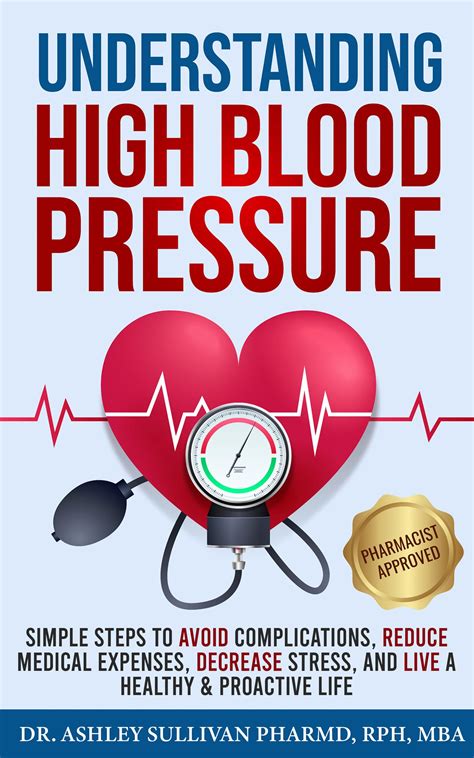
Causes of High Hypertension
There are several causes of high hypertension, including: * Genetics: Family history can play a role in the development of high blood pressure. * Lifestyle: Physical inactivity, obesity, and a diet high in salt and sugar can increase the risk of high hypertension. * Environmental factors: Stress, lack of sleep, and certain medications can also contribute to high blood pressure. * Medical conditions: Certain medical conditions, such as kidney disease and sleep apnea, can increase the risk of high hypertension.Managing High Hypertension
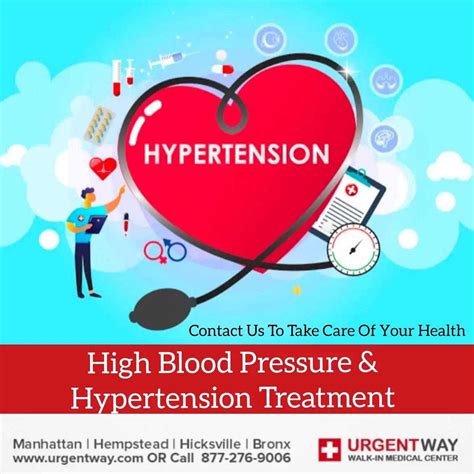
Lifestyle Changes for Managing High Hypertension
There are several lifestyle changes that can help manage high hypertension, including: * Losing weight: Maintaining a healthy weight can help reduce blood pressure. * Increasing physical activity: Regular exercise can help lower blood pressure and improve overall health. * Following a healthy diet: Eating a diet low in salt and sugar and high in fruits, vegetables, and whole grains can help manage high hypertension. * Reducing stress: Stress can increase blood pressure, so finding ways to manage stress, such as through meditation or deep breathing, can be helpful.Treatment Options for High Hypertension
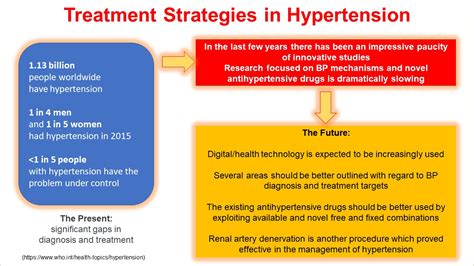
Medications for High Hypertension
There are several medications available to treat high hypertension, including: * Diuretics: Help remove excess fluid from the body and reduce blood pressure. * Beta blockers: Slow the heart rate and reduce blood pressure. * ACE inhibitors: Relax blood vessels and reduce blood pressure. * Calcium channel blockers: Relax blood vessels and reduce blood pressure.Complications of Unmanaged High Hypertension
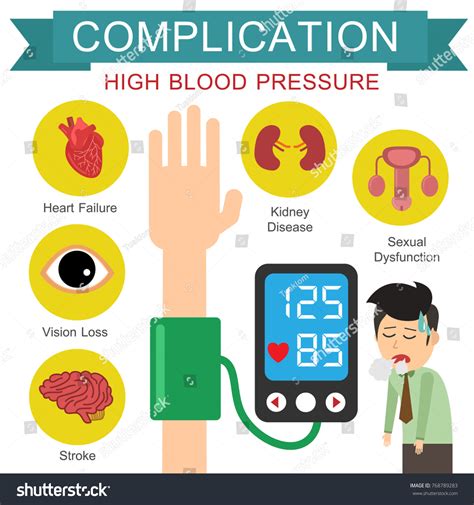
Risk Factors for Complications of Unmanaged High Hypertension
There are several risk factors for complications of unmanaged high hypertension, including: * Age: Older adults are at increased risk of complications from unmanaged high hypertension. * Family history: A family history of high blood pressure or cardiovascular disease can increase the risk of complications. * Lifestyle: Physical inactivity, obesity, and a diet high in salt and sugar can increase the risk of complications. * Medical conditions: Certain medical conditions, such as kidney disease and sleep apnea, can increase the risk of complications.Preventing High Hypertension
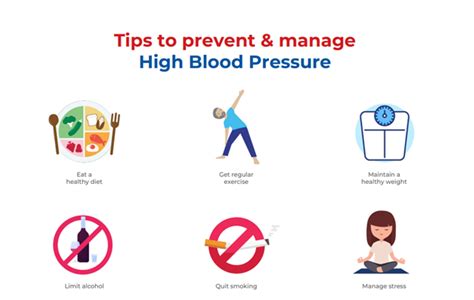
Strategies for Preventing High Hypertension
There are several strategies for preventing high hypertension, including: * Maintaining a healthy weight: Excess weight can increase the risk of high blood pressure. * Increasing physical activity: Regular exercise can help lower blood pressure and improve overall health. * Following a healthy diet: Eating a diet low in salt and sugar and high in fruits, vegetables, and whole grains can help prevent high hypertension. * Reducing stress: Stress can increase blood pressure, so finding ways to manage stress, such as through meditation or deep breathing, can be helpful.Conclusion and Next Steps

We invite you to share your thoughts and experiences with managing high hypertension in the comments below. Have you found any effective strategies for managing your blood pressure? What challenges have you faced, and how have you overcome them? Your insights can help others who are struggling with high hypertension, and we appreciate your input.
What are the symptoms of high hypertension?
+High hypertension often has no symptoms, but it can cause headaches, dizziness, and fatigue in some individuals.
How can I lower my blood pressure naturally?
+Losing weight, increasing physical activity, and following a healthy diet can help lower blood pressure naturally.
What are the complications of unmanaged high hypertension?
+Unmanaged high hypertension can lead to serious health complications, including heart failure, kidney disease, and vision loss.
